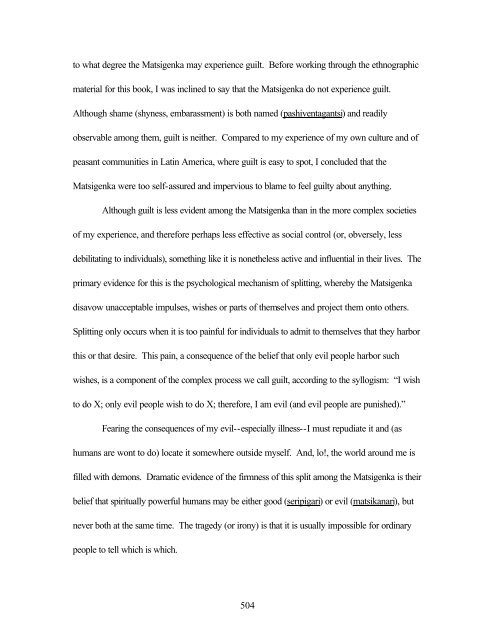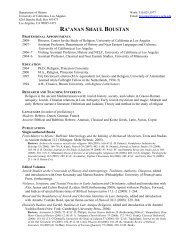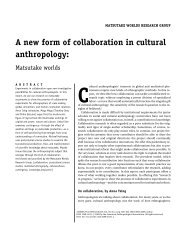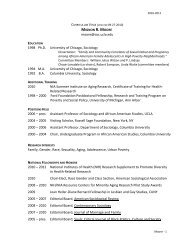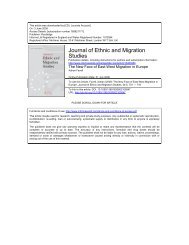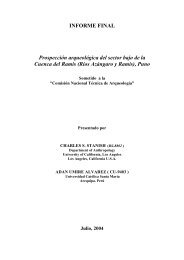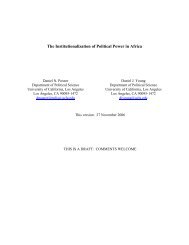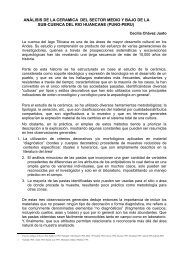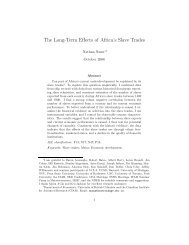433 Chapter Seven Cosmos For the Matsigenka of Shimaa, kameti ...
433 Chapter Seven Cosmos For the Matsigenka of Shimaa, kameti ...
433 Chapter Seven Cosmos For the Matsigenka of Shimaa, kameti ...
You also want an ePaper? Increase the reach of your titles
YUMPU automatically turns print PDFs into web optimized ePapers that Google loves.
to what degree <strong>the</strong> <strong>Matsigenka</strong> may experience guilt. Before working through <strong>the</strong> ethnographic<br />
material for this book, I was inclined to say that <strong>the</strong> <strong>Matsigenka</strong> do not experience guilt.<br />
Although shame (shyness, embarassment) is both named (pashiventagantsi) and readily<br />
observable among <strong>the</strong>m, guilt is nei<strong>the</strong>r. Compared to my experience <strong>of</strong> my own culture and <strong>of</strong><br />
peasant communities in Latin America, where guilt is easy to spot, I concluded that <strong>the</strong><br />
<strong>Matsigenka</strong> were too self-assured and impervious to blame to feel guilty about anything.<br />
Although guilt is less evident among <strong>the</strong> <strong>Matsigenka</strong> than in <strong>the</strong> more complex societies<br />
<strong>of</strong> my experience, and <strong>the</strong>refore perhaps less effective as social control (or, obversely, less<br />
debilitating to individuals), something like it is none<strong>the</strong>less active and influential in <strong>the</strong>ir lives. The<br />
primary evidence for this is <strong>the</strong> psychological mechanism <strong>of</strong> splitting, whereby <strong>the</strong> <strong>Matsigenka</strong><br />
disavow unacceptable impulses, wishes or parts <strong>of</strong> <strong>the</strong>mselves and project <strong>the</strong>m onto o<strong>the</strong>rs.<br />
Splitting only occurs when it is too painful for individuals to admit to <strong>the</strong>mselves that <strong>the</strong>y harbor<br />
this or that desire. This pain, a consequence <strong>of</strong> <strong>the</strong> belief that only evil people harbor such<br />
wishes, is a component <strong>of</strong> <strong>the</strong> complex process we call guilt, according to <strong>the</strong> syllogism: “I wish<br />
to do X; only evil people wish to do X; <strong>the</strong>refore, I am evil (and evil people are punished).”<br />
Fearing <strong>the</strong> consequences <strong>of</strong> my evil--especially illness--I must repudiate it and (as<br />
humans are wont to do) locate it somewhere outside myself. And, lo!, <strong>the</strong> world around me is<br />
filled with demons. Dramatic evidence <strong>of</strong> <strong>the</strong> firmness <strong>of</strong> this split among <strong>the</strong> <strong>Matsigenka</strong> is <strong>the</strong>ir<br />
belief that spiritually powerful humans may be ei<strong>the</strong>r good (seripigari) or evil (matsikanari), but<br />
never both at <strong>the</strong> same time. The tragedy (or irony) is that it is usually impossible for ordinary<br />
people to tell which is which.<br />
504


